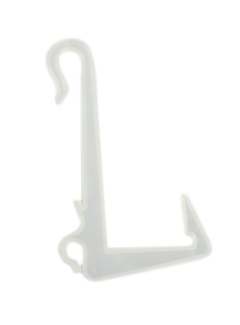Hanger, They are told their vertebrae are out of alignment, have a muscular injury from an accident, have a pinched nerve, “carry their stress there”, or have arthritic changes noted on an x-ray.
Hanger
While certainly, some individuals may have nerve compression from a serious degree of vertebral or disc issues, many others have been incorrectly diagnosed. They are actually suffering from a common cause of neck pain and tightness called coat hanger
Nexgen neck pain.
 Coat hanger neck pain
Coat hanger neck pain gets its name from the shape of the upper trapezius muscles that run on the upper back, from shoulder to shoulder and attach to the rear of the skull. The coat hanger pain often affects both sides, but it is not unusual for it to be one-sided.
The pain and muscle tightness result from a lack of proper blood flow and oxygen delivery into the muscles of the shoulder and neck. Lack of oxygen into a muscle is very painful; just ask anyone suffering from a lack of oxygen into their heart muscle (angina) or their legs (claudication).
The Autonomics can be injured by a physical blow to the head (concussions, sub-concussive events), intense emotional experiences (bankruptcy, betrayal, combat), or inflammatory traumas (vaccines, surgery, fractures, chemotherapy, radiation).
The body is designed to completely recover from these types of brain injuries within weeks to a few months but mounting evidence suggests that potentially 60-80% of the population can no longer completely repair their brain traumas due to a chronic inflammatory condition called inflammaging (See our recent post on Inflamm-Aging).
Autonomic injury makes it difficult to drive blood upwards into the head and neck leading to poor oxygen delivery and tight, painful neck muscles. Low blood pressure and oxygen delivery into the head and neck also result in muscle pain that causes migraine headaches, TMJ (temporomandibular joint) dysfunction, and pain.
The brain does not work well without enough blood pressure and oxygen and this is a common cause of chronic fatigue, lightheadedness or dizziness, poor concentration, ADD or ADHD, Hanger increased hunger especially for salt and sugar and generalized anxiety.
Sitting or standing still tends to worsen the neck pain because autonomic damage commonly allows blood to pool abnormally into the leg muscles resulting in inadequate delivery of oxygen into the muscle.
The blood and oxygen delivery into the head and neck region are improved with the movement of the leg muscles, and this fact helps diagnose coat hanger pain.
